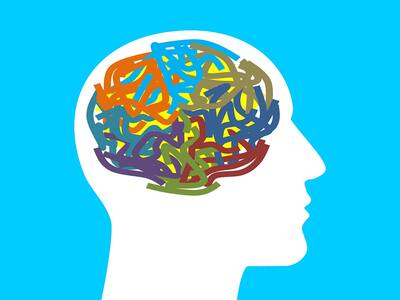
Our gut is so important to all the bodily processes that it is often referred as a second brain.
There’s an uncanny link between everything in our body and it will be surprising to find out that our gut has some relation with our mental health. It means that the health of your gastrointestinal tract which is also known as gut micro biome can directly impact our brain. The condition of our micro biome can increase or decrease the risk of depression and anxiety so if one works on improving their gut health, they can easily boost their mental health too.
Let’s know more about out gut micro biome!
Gut Micro biome is the complex ecosystem of microorganisms residing in the digestive tract that has potential influence on one’s mental health and well being. The gut brain connection is also known as gut-brain axis that in itself suggests the deep rooted connection between them. Our gut is so important to all the bodily processes that it is often referred as a second brain.
So there are some functions of gut micro biome and it includes defending against infections, regulating the creation of new blood vessels and digesting the complex food.
There are few ways in which our gut micro biome can influence mental health:
Communication Pathways
There’s a communication link between our brain and gut and they communicate bidirectionally through various pathways, including the nervous system, immune system, and endocrine system. The communication is facilitated by neurotransmitters, hormones, and immune molecules.
Neurotransmitter Production
You might have heard of these neurotransmitters like serotonin, dopamine and GABA that are crucial for mood regulation, emotions, and cognitive function. So these neurotransmitters are produced by your gut micro biome and changes in microbial composition can affect neurotransmitter levels, potentially influencing mood disorders like depression and anxiety.
Inflammation and Immune Response
Any imbalance in the gut micro biome can lead to inflammation and immune system dysregulation. Chronic inflammation is associated with a higher risk of mood disorders and neurodegenerative diseases. A healthy gut micro biome helps maintain a balanced immune response and may contribute to improved mental health.
READ RELATED: 7 Secrets for Women To Lose Weight After 50
Stress Response
The gut micro biome can modulate the body’s response to stress. Stress can disrupt the balance of gut bacteria, while a disrupted gut micro biome can influence the body’s stress response. This bidirectional interaction can impact mental health conditions like anxiety and depression.
Barrier Function
The gut plays a crucial role in maintaining the integrity of the gut barrier, which prevents harmful substances from entering the bloodstream. A compromised gut barrier (“leaky gut”) can lead to the release of inflammatory molecules that might impact brain function and mental health.
Microbial Metabolites
Gut bacteria produce metabolites through their metabolic activities. Some of these metabolites, such as short-chain fatty acids, can have direct effects on brain function and are linked to improved cognitive function and mood.
Diet and Gut-Brain Connection
Diet has a significant impact on the composition of the gut micro biome. A diet rich in fiber and diverse plant-based foods promotes the growth of beneficial bacteria. Conversely, a diet high in processed foods and sugar can lead to an imbalanced gut micro biome, potentially affecting mental health.
Micro biome Diversity
Greater diversity in the gut micro biome is associated with better overall health. Reduced microbial diversity has been linked to conditions like depression and anxiety.
Although, there is a unique connection between gut micro biome and mental health, still mental health conditions cannot be entirely influenced by these factors, there are other factors including genetics, environmental and other social factors.
Total Wellness is now just a click away.
Follow us on
Don’t Miss Out on the Latest Updates.
Subscribe to Our Newsletter Today!
window.addEventListener(‘load’, (event) => {
$(‘#commentbtn’).on(“click”,function(){
(function(d, s, id) { var js, fjs = d.getElementsByTagName(s)[0]; if (d.getElementById(id)) return; js = d.createElement(s); js.id = id; js.src = “//connect.facebook.net/en_US/sdk.js#xfbml=1&version=v2.3”; fjs.parentNode.insertBefore(js, fjs);}(document, ‘script’, ‘facebook-jssdk’));
$(“.cmntbox”).toggle();
});
});










